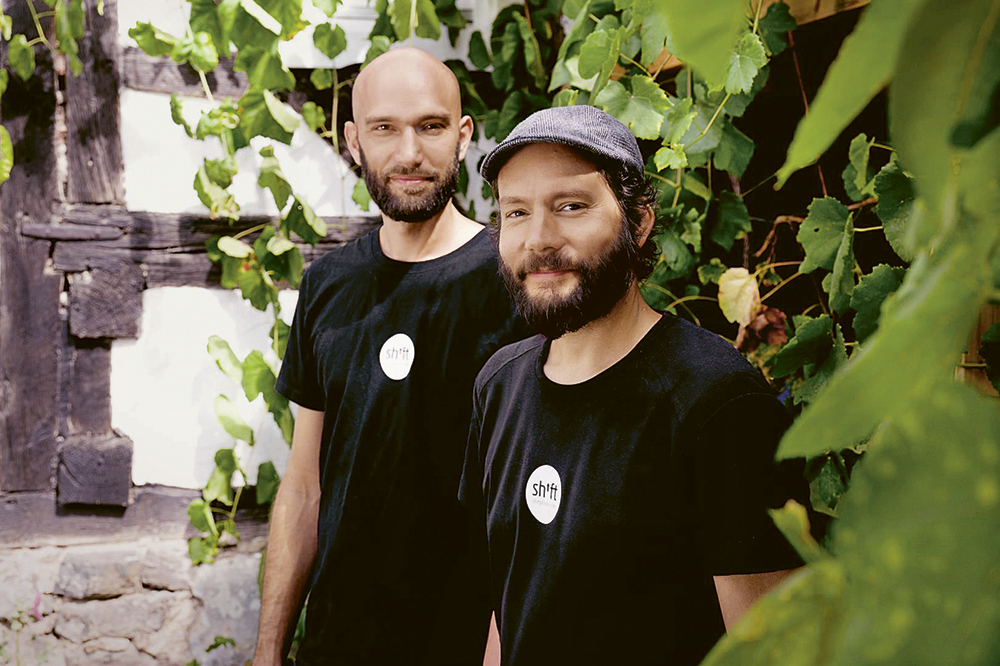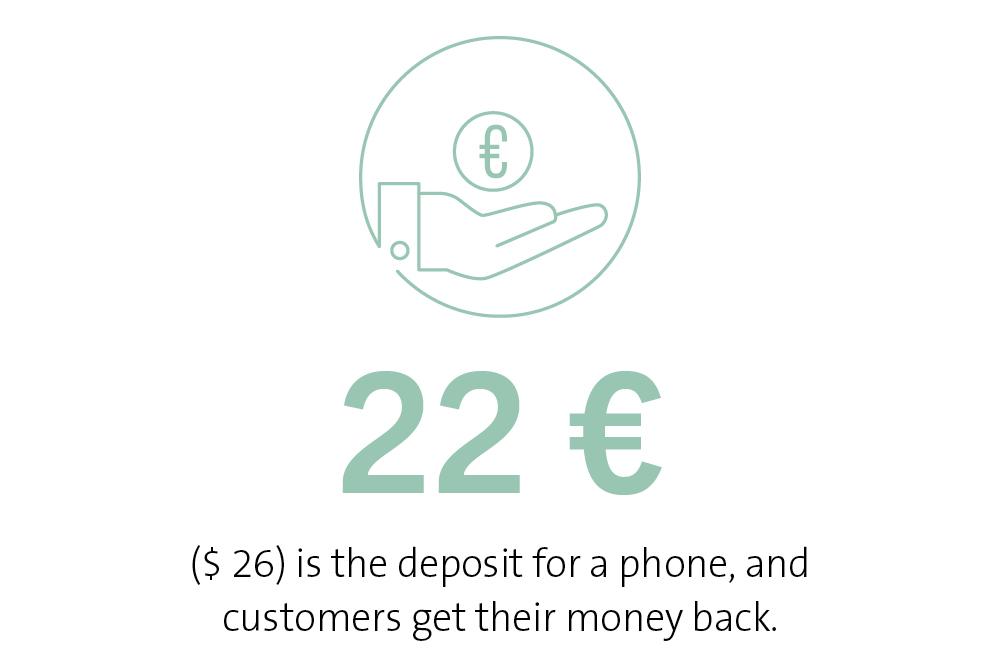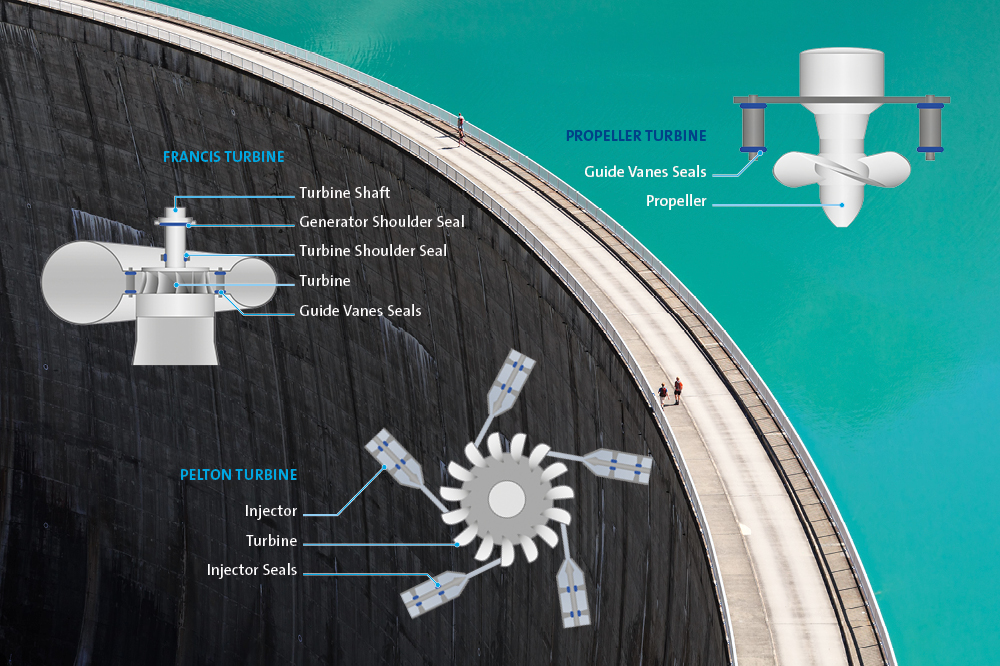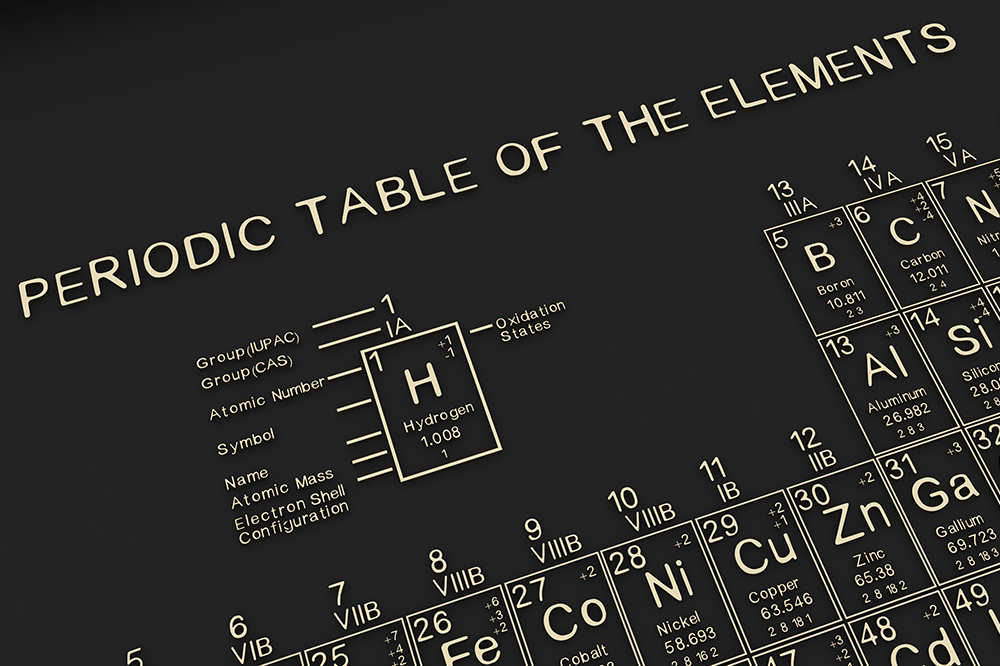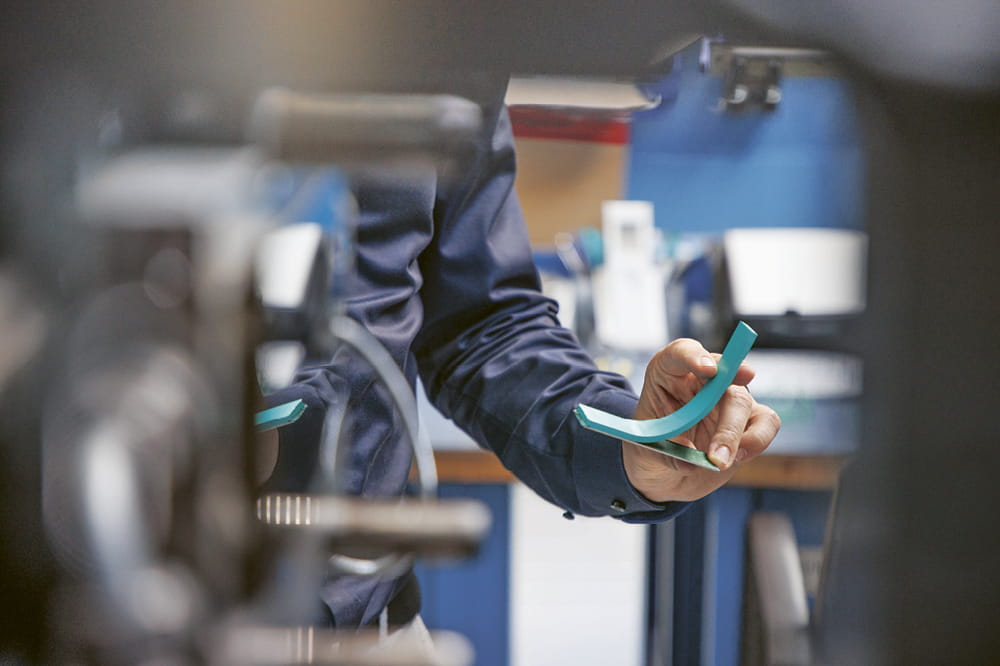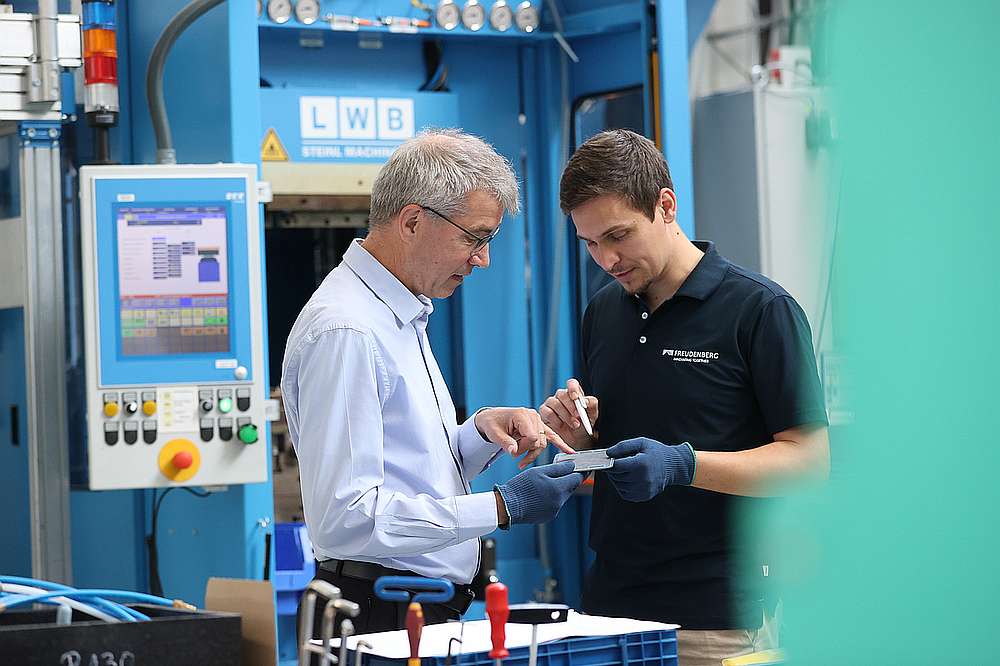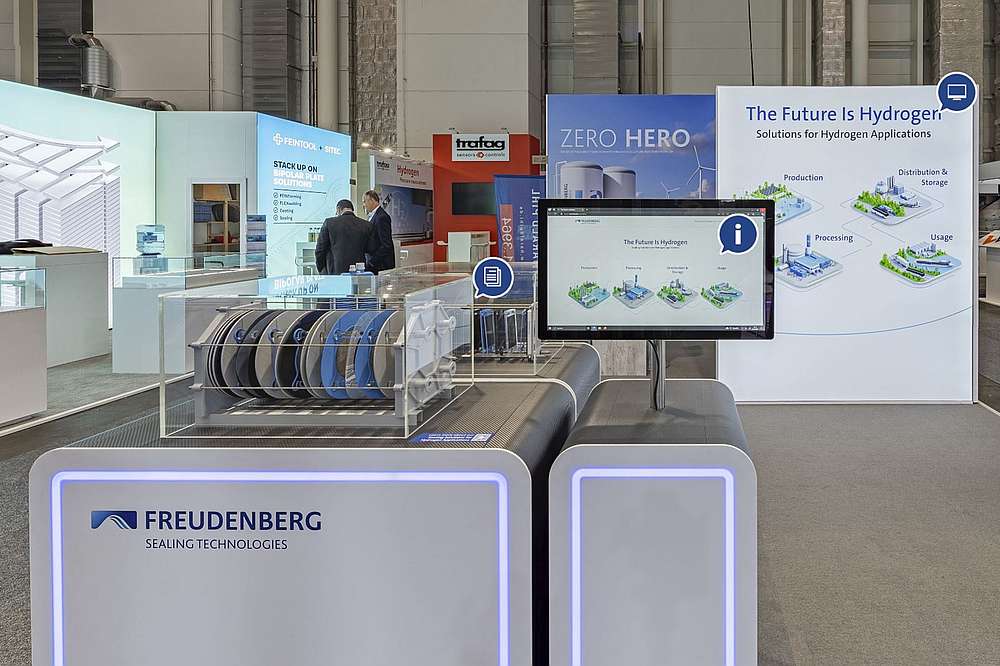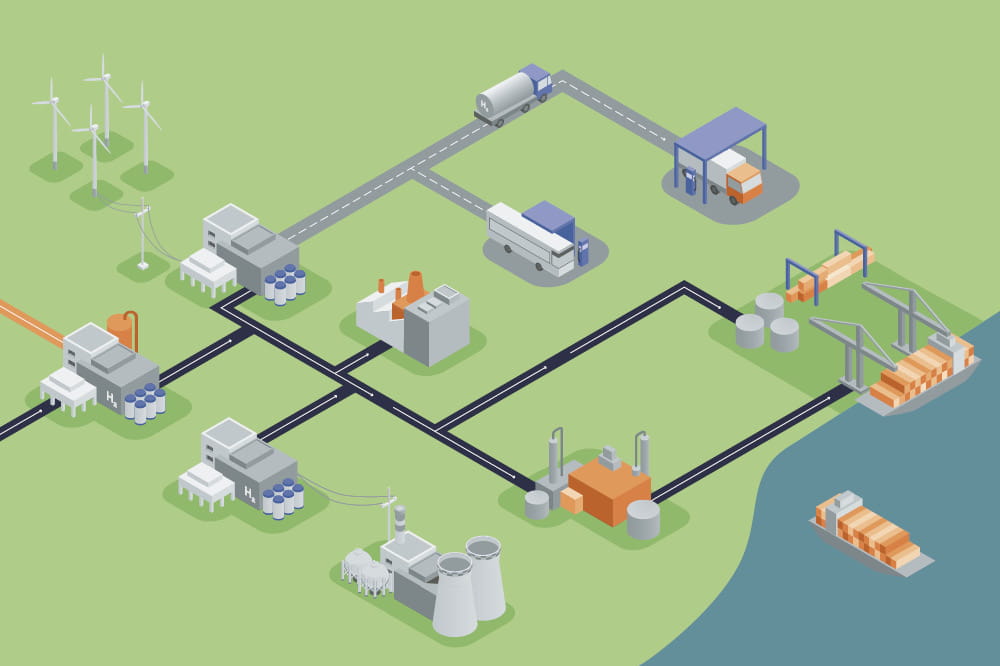Obtain news and background information about sealing technology, get in touch with innovative products – subscribe to the free e-mail newsletter.
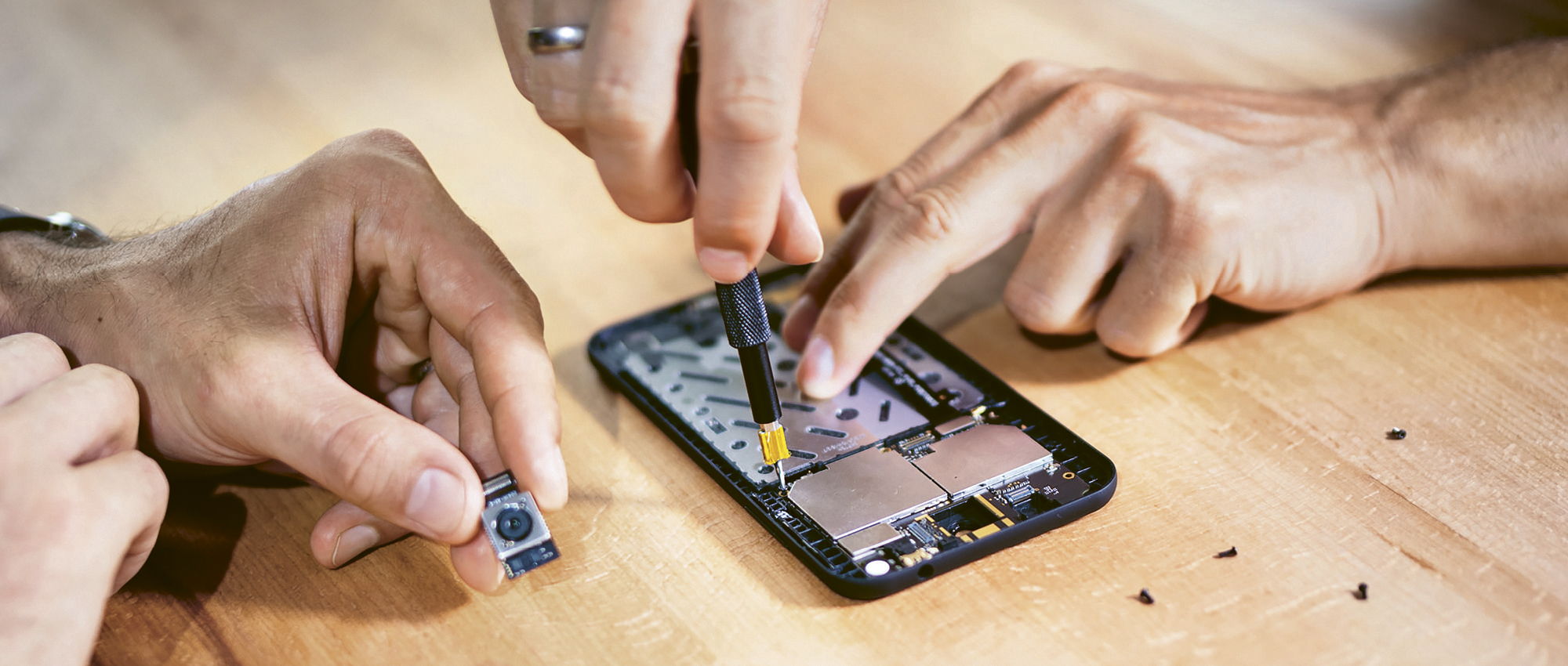
24.08.2021 | Story
Swapping Everything Out
So mobile phones have to be repaired by experts and end up as electronic scrap in two years? There are two entrepreneurs who aren’t happy with that situation. The Waldeck brothers produce sustainable smartphones while keeping close track of the resources they use.
As children, Carsten and Samuel Waldeck confronted scarcities of resources at an early age. Their father had founded an organization to help drug-dependent young people. It was housed in an old manor out in the country. “There was a shortage of everything. It ran totally on donations,” Samuel Waldeck recalled. Anyone who has ever started a charitable project likely knows how he feels. The experience left its mark on him. Waldeck says Mother Nature, with its ever-present cycles, became his model. “Everything that functions is actually a cycle. Only human beings conceive of cycles that don’t work. Or there’s no cycle to begin with.” Take smartphones, for example. On average, less than 20 percent of people use their smartphones more than two years. In the United States alone, about 150 million smartphones are discarded every year – as special waste containing toxic components. Recycling is difficult because the individual parts are connected and fused to one another. “Shredded telephones are a huge mix of materials,” Waldeck said.
Company founders: Samuel (l) and Carsten (r) Waldeck launched their company in Falkenberg, Hesse, in 2014. © SHIFT GmbH
The two brothers wanted to do things differently. They wanted to have mobile telephones that were easy to repair and to recycle. As much as possible, without glued and soldered components. With as few multi-component plastics encased inside one another as possible. Both studied design. “A device that can’t be repaired is bad design,” Samuel Waldeck is convinced. So the two founded SHIFT in Falkenberg, Hessen, in 2014, and have produced about 50,000 devices since then. Waldeck reaches for a smartphone and removes its backside. There was a cracking sound and then the interior lay open. A user could replace what was inside without expert help – everything from the battery to the camera -- and in some cases even repair the item. SHIFT offers advice and videos to explain all this. A screwdriver driver comes with the phone at purchase.
Coltan, Gold, Lithium and Cobalt
But then the Waldeck brothers turned their attention to the issue of resources. What about the raw materials that are built into telephones? The pair delved into the matter of where the over-exploitation of nature or the abuse of workers has been taking place. One of their decisions involved coltan. “To the extent possible, we don’t want coltan in our devices,” Waldeck said. Coltan is a tantalum ore that is used to produce a heat-dissipating ceramic. Forced labor is used in a large part of Congo where it is mined. Due to smuggling, it’s not easy to see whether the trade in coltan is “fair.” Nor is it easy to determine the amount of coltan actually used in a phone. The brothers are now having their main circuit boards shot with neutrons to get the answer. They think the expense is worth it. At the same time, they are supporting local aid projects. The same issues apply to components such as gold, lithium or cobalt. But alternatives are clearly not available for every material.
Everything that we invest financially inevitably has something to do with sustainability and social justice.
Samuel Waldeck, Founder SHIFT GmbH
“About 150 grams of gold have been incorporated in all the SHIFT phones that we have ever produced,” Waldeck said. “In any case, scouring our supply chains to preclude any problems is expensive. And this would basically be much too small a lever.” It would be better to spend money on support projects. SHIFT buys electronic scrap from Ghana that is certified as child-labor-free and supports the Earth Beat Foundation, which finances small farmers in Uganda so they don’t need to work in gold mines. “Everything that we invest financially inevitably has something to do with sustainability and social justice,” Waldeck said.
Above all, the Waldecks have set the goal of seeing their smartphones recycled or reused as much as possible, and they have come up with the idea of a telephone deposit as part of the answer. Buyers pay a 22-euro deposit on their phone and get the money back later, even if they send an inoperable phone back to the company. “Electronic scrap that is discarded may not legally be resold or reused,” Waldeck said. “But we’re allowed to do it since we are officially taking the used devices back.” That not only lengthens the phone’s lifecycle – the manufacturers can also recycle individual parts if they are needed. This is especially true for precious metals and single-variety plastics. The designers have provided a modular design and an assortment of raw materials in advance that makes this recyclability possible and ensures that it runs smoothly. “For us, it is ultimately a matter of closing the material cycle,” Waldeck says.
Production: The assembly and screwing operations take place in China, at fair terms. Social justice is important to the entrepreneurs. © SHIFT GmbH
Paying Attention to Time and Money
SHIFT is deliberately striking out in another direction when it comes to another resource: time. After placing the order, customers wait four to eight weeks to get their phone. That is part of the concept. “We start about a year before the production of a device, in part to pay for it,” Waldeck said. “If we have any buffer in terms of the timeframe, it helps us.” As some supply chains wobbled during the pandemic, SHIFT was still able to make on-time deliveries. “As consumers, we’re used to getting everything the next day,” Waldeck said. “I think that, as a producer, you can draw attention to why a long-term approach can be a good thing.”
Part of the reason for this approach is that the brothers have been running their company without investors since 2014. “To us, it was important for the company not to fall into a state of dependency,” Waldeck said. All too frequently, they have seen investors exert considerable pressure on companies during crises. This has not always been to the company’s benefit. SHIFT wants to grow, but not in response to pressure. “This brings us back to Mother Nature as our model,” Waldeck said. “In a forest, large trees and small trees grow at their own pace.” That makes them resilient. If companies grow independently, they don’t suddenly find themselves in dire straits.
More news on the subject Sustainability

Join Us!
Experience Freudenberg Sealing Technologies, its products and service offerings in text and videos, network with colleagues and stakeholders, and make valuable business contacts.
Connect on LinkedIn! open_in_new